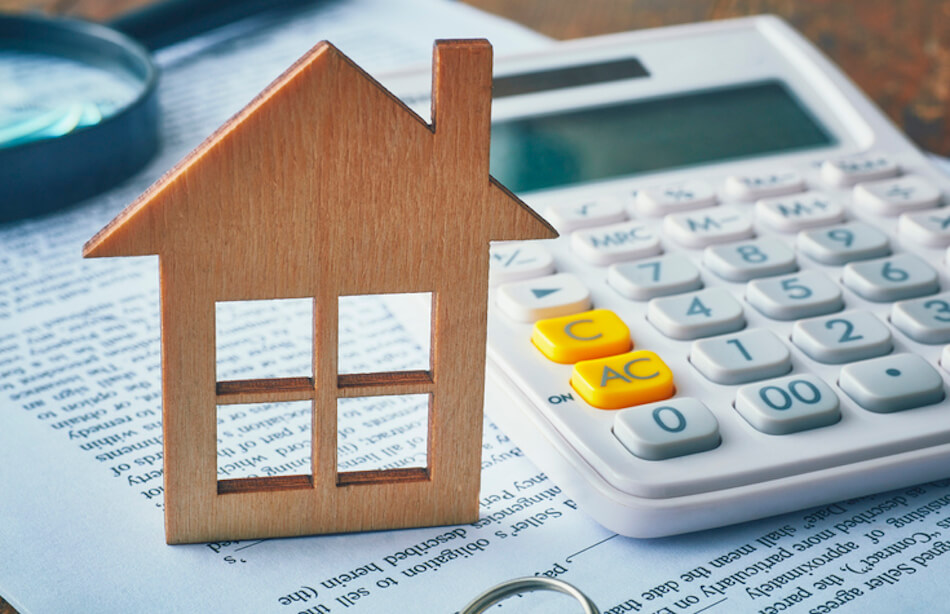LAW
Tax Savvy: A Rental Property Deductions Checklist

From the wide array of tax deductions, do you think you’re taking every possible write-off as a landlord? Most, if not all, landlords write off all the expenses they incur. Take property taxes as one, for instance.
Given their high amount, landlords seek legal deductions to help lower the amount. As such, tax-savvy landlords make a tax deductions checklist. Among many deductions, they put property tax deductions on the list.
In this post, we’ll cover the rental property deductions checklist. Read on to learn more.
What Are Rental Property Deductions?
Tax Savvy A Rental Property Deductions Checklist is a valuable resource for anyone who owns or manages a rental property. It provides guidance on which expenses can be deducted and which may need to be depreciated over time. This tool is especially useful for those who are unfamiliar with rental property deductions and want to ensure they are managing their finances.
With Tax Savvy A Rental Property Deduction Checklist, landlords and property owners can rest assured that they are making the most of their investment.
Common Rental Property Deductions
This checklist outlines the common rental property deductions that can be claimed, helping property owners reduce their taxable income and increase their cash flow. Some of the most common deductions include:
- advertising and marketing
- closing costs
- continuing education
- depreciation – building
- depreciation – segmented
- dues and subscriptions
- home office
- insurance
- mortgage interest
- landscaping
- leasing
- licenses
- maintenance
- office supplies
- professional fees
- property management
- property taxes
- QBI pass-through deduction
- repairs
- sales tax
- telephone
- tenant screening
- travel – local
- travel – remote
- utilities
There are occasions when a small building, such as a duplex or triplex, has a master meter for gas, water, or electricity. When calculating the monthly rent for a renter, landlords that provide the utilities deduct the cost of the utilities as an operating expense.
How to Keep Track of Rental Property Deductions
Keeping track of rental property deductions is an important aspect of managing rental properties. To do so, there are a few key steps to follow. It is crucial to keep organized records of all expenses related to the rental property, including receipts, invoices, and bank statements.
These records will help when it comes time to file taxes and claim deductions. It is important to stay up to date on tax laws and regulations, as they may change each year. This will ensure that all eligible deductions are claimed. Using software or hiring a professional accountant can make the process much easier and more accurate.
By following these steps, landlords can keep track of and claim all necessary deductions for their rental properties. If you want to get help with your tax deductions and to have more knowledge about it, you may opt for Yardi consulting services.
Knowing the Rental Property Deductions Checklist
In conclusion, a rental property deductions checklist is an essential tool for any landlord or property owner looking to save money on their taxes. By following this checklist and thoroughly documenting all eligible deductions, you can maximize your tax savings and increase your profits. Don’t forget to consult with a tax professional for personalized advice.
Start maximizing your rental property deductions today with this helpful checklist!
If you thought this article was useful, you can find more in our blog.
LAW
Kennedy Funding Ripoff Report: Real Borrower Experiences & Warnings

Kennedy Funding is a well-known hard money lender specializing in real estate financing. They offer loans for land acquisitions, construction projects, and distressed properties. Many borrowers seek their services when traditional banks refuse financing.
However, complaints about Kennedy Funding have surfaced on consumer forums. The “Kennedy Funding Ripoff Report” is filled with grievances from borrowers who claim they were misled. Some have raised concerns about excessive fees, delayed approvals, and poor communication.
Not all reviews are negative, as some clients have successfully obtained loans. Yet, the presence of repeated complaints raises questions about the company’s business practices. Understanding these reports is crucial for potential borrowers to make informed decisions.
This article examines Kennedy Funding’s operations, common complaints, borrower experiences, and how to protect yourself from lending risks. A well-informed approach can help borrowers avoid potential pitfalls and ensure a smoother loan process.
Who is Kennedy Funding?
Kennedy Funding has been operating in the financial industry for decades. They specialize in hard money loans, which are short-term, asset-based loans often used for high-risk real estate projects. These loans appeal to investors who cannot obtain financing from traditional banks.
The company claims to offer quick approvals and flexible terms. They finance loans ranging from millions to tens of millions of dollars. Their primary market includes commercial real estate, land development, and even international financing.
One reason borrowers turn to Kennedy Funding is their willingness to lend against properties that banks reject. While this flexibility is attractive, it also comes with higher interest rates and fees compared to conventional loans.
Despite its reputation for handling complex deals, the company has also faced criticism. Numerous reports suggest that some borrowers feel misled about the actual costs and conditions of their loans.
Kennedy Funding Ripoff Report
The Kennedy Funding Ripoff Report highlights concerns from borrowers who claim they experienced hidden fees, delayed approvals, and poor communication when dealing with the lender. Many complaints suggest that applicants paid large upfront fees but never received funding, leaving them frustrated and financially strained. These reports raise questions about transparency and fairness in the company’s lending practices.
While some borrowers have had successful loan experiences, others feel they were misled about the true costs and terms. The mixed feedback suggests that while Kennedy Funding provides financing for high-risk real estate projects, borrowers must carefully review loan agreements and understand all terms before committing to avoid unexpected financial losses.
Common Complaints in Ripoff Reports
Many borrowers have expressed concerns about unexpected fees. Some claim that they were charged large upfront fees but never received loan approval. Others say they were only informed of hidden costs after committing to the deal.
Another frequent complaint is loan processing delays. While Kennedy Funding promises quick approvals, some borrowers report waiting months without clear updates. Delays can be costly, especially for real estate developers with time-sensitive projects.
Lack of communication is another major issue. Clients say they struggle to get responses from loan officers. Unanswered emails and phone calls make it difficult for borrowers to plan their next steps.
Common Complaints in Ripoff Reports
| Complaint Type | Details Reported by Borrowers |
| High Upfront Fees | Large fees charged before loan approval |
| Processing Delays | Months-long delays in funding |
| Hidden Costs | Additional fees not disclosed initially |
| Poor Communication | Difficulty in reaching loan officers |
| Loan Denial After Fees | Borrowers paid fees but never got the loan |
The “Kennedy Funding Ripoff Report” includes cases where borrowers claim they were denied loans after paying significant fees. Some believe the company takes advantage of desperate borrowers who have limited options.
Kennedy Funding’s Response to Complaints
Kennedy Funding has publicly addressed some of these allegations. They claim that every fee and cost is disclosed in their contracts and that borrowers should read all terms before signing.
The company insists that loan delays happen due to incomplete paperwork or external factors. They also highlight that hard money lending is more complex than traditional loans, requiring thorough evaluations.
In response to communication issues, Kennedy Funding states that their loan officers are available for inquiries. They encourage borrowers to maintain regular contact with their assigned representatives.
Despite these clarifications, complaints continue to surface. While some borrowers feel satisfied after resolving disputes, others still believe they were misled or unfairly treated.
Real-World Borrower Experiences
Some borrowers have shared positive experiences. They state that Kennedy Funding helped them secure financing when no one else would. These borrowers acknowledge that the process is expensive but believe it was worth the cost.
Others have reported mixed experiences. They received funding but faced unexpected delays and additional fees. Some were able to complete their projects successfully, but only after overcoming financial hurdles.
Negative experiences are also widely documented. Borrowers claim they felt trapped in agreements with excessive fees. A few even say they lost significant amounts of money due to non-refundable payments.
The “Kennedy Funding Ripoff Report” highlights both success stories and failures. The key takeaway is that borrowers should carefully assess risks before committing to a loan with this lender.
Legal and Regulatory Aspects
Hard money lending is legal but comes with fewer consumer protections than traditional banking. Borrowers should be aware that these lenders operate under different regulations.
If a borrower feels misled, they can file complaints with agencies such as the Better Business Bureau (BBB) or the Consumer Financial Protection Bureau (CFPB). These organizations help mediate disputes between lenders and borrowers.
Legal action is another option. Some borrowers have sought legal advice to recover funds from what they claim were unfair lending practices. However, lawsuits against lenders can be time-consuming and costly.
Understanding legal rights before signing a contract is essential. Borrowers should consult financial experts to ensure they are not exposing themselves to unnecessary risks.
How to Protect Yourself from Unfair Lending Practices
Research Before Applying
Check multiple reviews and complaints before committing to a lender. Read borrower experiences on platforms like Ripoff Report, Trustpilot, and BBB.
Get a Breakdown of Fees
Ask for a detailed cost breakdown before signing any agreement. Ensure that all fees, including origination fees, processing costs, and penalties, are clearly stated.
Verify Loan Terms in Writing
Never rely on verbal promises. Make sure every term, including interest rates and repayment conditions, is in a legally binding document.
Consult a Financial Expert
A real estate attorney or financial advisor can review loan terms and identify potential risks before you proceed.
Compare Alternatives
Kennedy Funding is not the only hard money lender available. Compare terms with other lenders to find the best deal.
Conclusion
The “Kennedy Funding Ripoff Report” presents both positive and negative borrower experiences. While some clients successfully obtain loans, others claim they faced excessive fees, delays, and poor service.
Before applying for any loan, borrowers should conduct thorough research. Understanding the lender’s terms, reading customer reviews, and seeking professional advice can prevent financial losses.
Kennedy Funding may be a viable option for some, but due diligence is key. A well-informed borrower is less likely to fall into unexpected financial traps.
If you’re considering a hard money loan, take your time, compare options, and protect yourself from unfair lending practices.
FAQs
Why are there complaints about Kennedy Funding?
Many borrowers report high upfront fees, loan delays, and hidden costs, leading to frustration and financial losses.
Has Kennedy Funding successfully funded loans?
Yes, some borrowers have received financing, but others claim they faced unexpected hurdles and additional costs.
How can I avoid issues with Kennedy Funding?
Carefully review loan agreements, ask for a fee breakdown, and consult a financial expert before signing any deal.
Are all reviews about Kennedy Funding negative?
No, while many borrowers share complaints, some have successfully secured loans for high-risk real estate projects.
What should I do if I have a dispute with Kennedy Funding?
You can file a complaint with consumer protection agencies or seek legal advice if you feel misled by loan terms.
LAW
Estate Planning Lawyers: Their Roles and Selection Process

An estate planning attorney is the person you work with to create a legal document that expresses your final wishes. The process involves sharing very personal information with an individual that you trust. Finding the right attorney can be challenging. It would help if you started by asking family, friends, and coworkers for a recommendation.
Experience
A good estate planning attorney can help individuals understand their options for transferring property to beneficiaries in the event of death or incapacity. They can also help individuals avoid disputes or litigation that may arise in court regarding their wishes or the execution of their estate plan. The process involves compiling documents, analyzing property values, and interviewing family members to determine heirship. It is a complex task requiring the assistance of legal and financial professionals. When interviewing potential attorneys, it is essential to ask about their experience in this area of law and any previous work they have done on similar cases. Individuals should also be aware of the cost associated with these services and consider whether they can afford to hire an attorney.
While some attorneys bill on an hourly basis, others have fixed fees. Individuals should compare rates between several attorneys before making a decision. It is also helpful to look at client reviews and speak with past clients to get a feel for the attorneys. A lawyer who is challenging to work with or needs to communicate effectively with clients may not be the best fit. However, an attorney who explains fees clearly and is willing to work within a budget can be a good choice.
Fees
Choosing an estate planning attorney is a significant decision that will affect your future. Attorney fees are contingent upon the nature, extent, and complexity of your assets and the circumstances surrounding them. You will want to find a well-qualified estate attorney in Sacramento who understands the financial and legal complexities of estate planning, can help you draft a plan consistent with your wishes, and complies with federal and state law. Many attorneys will charge an hourly rate, and some will ask you to pay a retainer upfront before they start work on your case. The attorney may count the hours they work on your estate planning matter against the initial amount charged and either refund any unused funds or ask you to provide additional funds when the retainer is spent.
Some lawyers might bill a flat rate for a complete estate plan. These attorneys often offer a package that includes several services, such as inventorying assets to determine what is owned and who owns it, naming guardians for children, and creating trusts that reduce the likelihood of probate court.
It would help to consider how accessible your attorney will be and how quickly they respond to calls or emails. A responsive lawyer who stays in touch with you during the process is what you want because you will need to update your estate planning documents regularly.
Reputation
In estate planning, working with attorneys with a solid reputation is essential. When searching for an attorney, look for references from past clients and their reviews. Ask about their experience in the field and whether they are members of any professional groups. Also, remember that this type of law is nuanced and changes frequently, so it is essential to find an attorney with the expertise to stay current on any changes in the regulations. Your lawyer’s ability to design a thorough plan that considers every facet of your financial and legal circumstances is something else to consider. For example, a good estate plan will include a power of attorney that allows you to name someone to make decisions and perform specific actions on your behalf should you become incapacitated. The lawyer should be able to explain this in detail so that you understand how it will work.
The attorney should also understand state and federal estate taxation and how it might impact your circumstances. They should be able to recommend different ways to structure your estate and assets, such as creating a trust or establishing beneficiary designations on accounts. Beneficiary designations can be amended or revoked at any time, so reviewing them regularly with your attorney is essential.
Personality
Estate planning attorneys can help individuals with various legal needs, including creating wills and trust documents, designating beneficiaries, and advising on complex issues like taxes and asset protection. Considering experience, skill, and personality is crucial when selecting an attorney. When interviewing potential attorneys, asking them about their previous work in the field is also helpful. It will provide valuable insight into their ability to meet clients’ needs and ensure they can create a plan that aligns with state regulations.
Selecting an estate planning lawyer who takes the time to learn about each client’s financial circumstances and asset-vesting objectives is crucial. They should be able to advise clients on strategies that can minimize taxes and protect assets from creditors while still meeting their desired goals. Selecting an estate planning attorney who communicates well with each client is also essential. They should be able to answer questions in a way that is easily understood and makes the client feel comfortable discussing personal family details. It is particularly critical because many estate planning attorneys will act as fiduciaries for their clients, and having a good relationship is essential to complete this type of work.
LAW
Ideas For Working with a Domestic Violence Lawyer

Suppose you’re a survivor of domestic violence. In that case, there are many things to consider: your safety, financial security, how you will care for your children and pets, where you live, and what kind of housing may be available.
A domestic violence lawyer can help you with all of these issues. They can also help you file for divorce and obtain restraining orders.
File for Divorce
Getting a restraining order is the first step to protecting yourself and your family from abuse. Unfortunately, many people who suffer from domestic violence have to go through this process several times before they are safe. On average, it takes seven attempts before an individual is free from their abusive partner. This can be frustrating for the abuser, who may file repeated motions to modify custody and visitation orders or harass children during court-ordered visits to get information about survivors (Legal Resource Center on Violence Against Women).
A divorce lawyer can help victims of domestic violence who are in danger of being harmed by their spouse or co-parent. The lawyer can also help them resolve issues like spousal support, property division, and child custody. A family law attorney can provide legal expertise and emotional support throughout the divorce or dissolution.
A domestic violence lawyer near me needs to listen without judgment to a client who feels that it is unsafe to leave their home, particularly if the abuser has shown signs of genuine repentance or expressed remorse. They should respect the fact that a woman or man may have a difficult time leaving an abusive relationship and can offer resources for longer-term housing, financial assistance, and counseling services.
After a divorce case is filed, the papers must be served to the Defendant (the person against whom the claim has been made). This can be done by hand-delivering them or through other means.
Get a Restraining Order
When an individual feels they are in immediate danger of being hurt or killed, they can ask a judge for a protection order (restraining order). The process varies by jurisdiction but usually involves appearing at the courthouse and filing some paperwork. Some courts allow you to begin the process from home or online.
When you appear at the court to request a restraining order, you will be asked to tell the judge what has happened and why you feel you need this type of order. You will also be allowed to check off all the protections you want the court to include in the order. You should check all of the boxes that apply to your situation.
The court will then set a hearing for about three weeks to hear from you and the Defendant and decide on a final order of protection, which can last up to 5 years. During this time, the person with the order will be prohibited from coming near or harassing you. If they do, you can call the police immediately.
Your lawyer can help you navigate this whole process from start to finish. They can explain your rights, complete all necessary paperwork, and deal with the prosecutor on your behalf. A reasonable domestic violence attorney can design a case strategy in your best interests.
Talk to a Counselor
As a counselor, it’s essential to be aware that clients with a history of domestic violence can present with a variety of issues related to the situation. For example, a client may be struggling with posttraumatic stress disorder or symptoms like feeling unsafe, flashbacks, and being jumpy, as well as feelings of depression, emotional withdrawal, low self-esteem, and guilt.
Some survivors are reluctant to talk about their experiences, which is normal. When you work with these clients, be patient and allow them to tell their stories comfortably. Listen without judging or offering advice, and remember that this could be the first time they have shared their experience with someone outside of family members.
Survivors often come to counseling with questions and concerns about their legal options. This is where a skilled lawyer can help. They can explain your state’s various domestic violence laws and what to expect during a Court proceeding. They can also point you in the direction of resources and support services that can help you find a new home and rebuild your life after escaping an abusive relationship.
Counselors are often called on to help victims through the complex divorce process. They can assist with determining whether or not a divorce is in the best interests of the victim. They can help them navigate the many other complex issues that arise when leaving an abusive relationship – such as child custody, visitation and custody, child support, property division, and family court proceedings.
Contact a Lawyer
In the United States, a third of all women and a fourth of all men experience some form of domestic violence in their marriage or intimate partner relationship. Abuse can include physical harm, psychological abuse, and emotional manipulation. In addition, financial abuse is a common element of domestic violence. Abuse can lead to high medical costs, lost wages from time off work, and a loss of self-esteem for victims. Lawyers who specialize in domestic violence and related issues often help their clients obtain restraining orders, file for divorce, or recover compensation for medical treatment and other damages.
Domestic violence cases are taken very seriously by prosecutors and judges. A conviction can result in expensive fines, a criminal record that will affect your employment and professional licensing opportunities, and even jail time. An experienced New York City domestic violence defense lawyer can challenge the prosecution’s case to protect your family and career.
Domestic violence charges can be handled in family court or criminal court. If the alleged victim calls the police, the case is likely to be in criminal court; however, if a couple of files for divorce and their dispute involves custody, the allegations will likely be in family court. An experienced attorney can determine which type of court a case should be filed in and develop the best possible combination of available defenses.
-

 L,IFESTYLE2 years ago
L,IFESTYLE2 years agoExploring the Heart of Iowa City Downtown District
-

 TECH2 years ago
TECH2 years agoMaximizing Your Pixel 6a’s Wireless Charging Performance: Tips and Tricks
-

 SPORTS3 years ago
SPORTS3 years agoclub america vs deportivo toluca f.c. timeline
-
CRYPTO2 years ago
Features of Liquidity Providers and Differences Between Them
-

 BUSINESS2 years ago
BUSINESS2 years agoThe Evolution of the Patagonia Logo: A Look at the Brand’s Iconic Emblem
-

 TECH3 years ago
TECH3 years agoBuild Your Email Marketing Contact
-

 TECH3 years ago
TECH3 years ago6 Ways AI Will Change the Future of Marketing
-

 HEALTH8 months ago
HEALTH8 months agoProstavive Colibrim: A Natural Prostate Health Supplement









